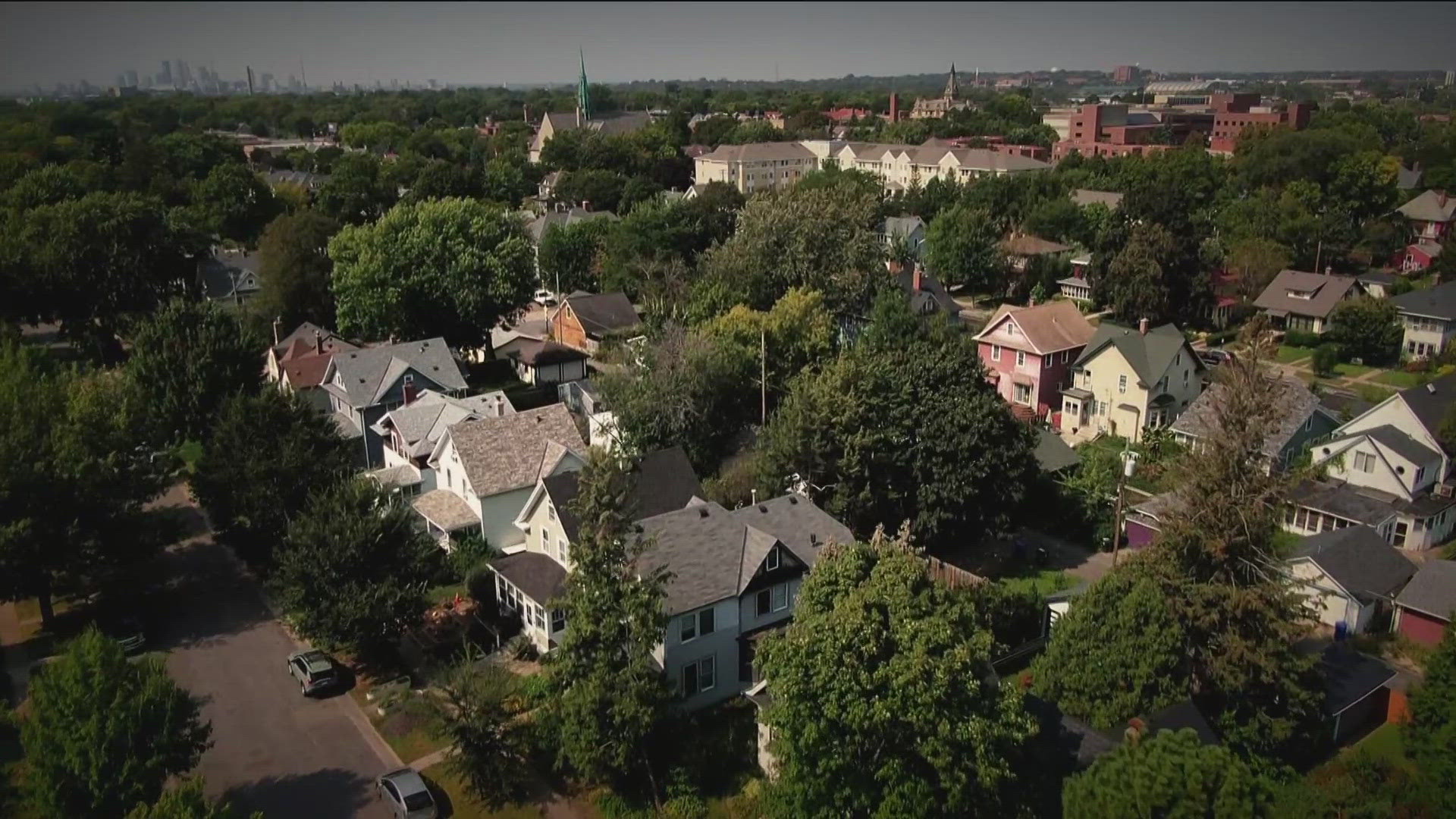PLYMOUTH, Minn — When it comes to owning a home, Minnesota has one of the largest disparity gaps in the country between white families and Black families.
According to University of Minnesota researchers with the Mapping Prejudice Project, home ownership for white households is around 78%. For Black households, that number is around 25%.
Although racist restrictions in neighborhoods is illegal thanks to the Fair Housing Act, which protects people from discrimination, it's still a major problem.
Thousands of homeowners in Minnesota still have what's known as a "racial covenant" in their deed. Essentially these covenants were put into property deeds to prevent people of color from living or occupying land in many neighborhoods.
The Mapping Prejudice Project scoured through thousands of public records highlighting this hidden racist clause in deeds that many homeowners likely didn't know existed on their record.
U of MN's Kirsten Delegard is the director of the Mapping Prejudice Project, and she explained why this data is so important in understanding the huge disparity gap existing today.
"Housing is fundamental for every aspect of well being," Delegard said. "The kind of housing that you have determines whether you're gonna be sick or healthy, what kind of access to green space you're gonna have, what kind of access to educational opportunities you're gonna have, whether or not you're gonna be breathing polluted air. This exploration of who had access to housing when what were the barriers for certain groups is key to understanding why we have such high disparities in Minnesota today."
Part of the Mapping Prejudice Project is to inform homeowners in Minnesota about these racial covenants. Thousands have been discharged while other homeowners like the Crichton family in Plymouth, are only learning of this discriminatory past.
"My dad bought the property in 1949 and built this house.," said Ellen Crichton paging through an old photo album. "He and my mom designed it and built it themselves and we were all raised here."
What once was a place Ellen Crichton took her first steps, is now a place her grandkids are doing the same.
"We bought the property and refurbished it and I love it," Crichton said.
Crichton's Plymouth home was passed down from one generation to the next without knowing that their family home had a racial covenant in their property deed.
"I was flabbergasted that that was on the deed, I couldn't believe it," Crichton said.
"It says, 'No persons of any race other than Caucasian race will use or occupy any building or lot except that this covenant shall not prevent occupancy by domestic servants of a different race domiciled with an owner or tenant.' Isn't that all horrible?"
In layman's terms, the land was off limits to those who were not white and although illegal, the hateful racist language still exists in thousands of deeds in Minnesota today.
"I'm sure that my dad didn't see that in the deed," Crichton said. "I'm sure he didn't read the entire thing."
The Crichton's were told about the Just Deeds Coalition, which is a group of attorneys, realtors and various cities that provide legal and title services to help property owners find discriminatory covenants and discharge them for free.
Maria Cisneros is the City Attorney for Golden Valley and part of the Just Deeds Coalition. Cisneros had removed a covenant on her own home, and knows just how important it is.
"I think one of the best things to come out of discharging a covenant is that you have added to the historical record," Cisneros said. "The covenant is always gonna be there in Minnesota. The law doesn't delete the language from the historical record. It's always gonna be in the property records, but when you discharge your covenant, we fill out a new piece of paper that disavows the language in the covenant and then you sign it and then your name is now in the historical record."
"We would have passed it on with that on there," Crichton said. "You know... I wouldn't want that on my conscience."
The Mapping Prejudice Project has found more than 55,000 racial covenants in property deeds across the state of Minnesota so far. Delegard said that many covenants were placed by developers when they developed a new neighborhood.
If you would like to learn more about the Mapping Prejudice Project, click here. If you would like to find out if your home has a racial covenant, click here.

